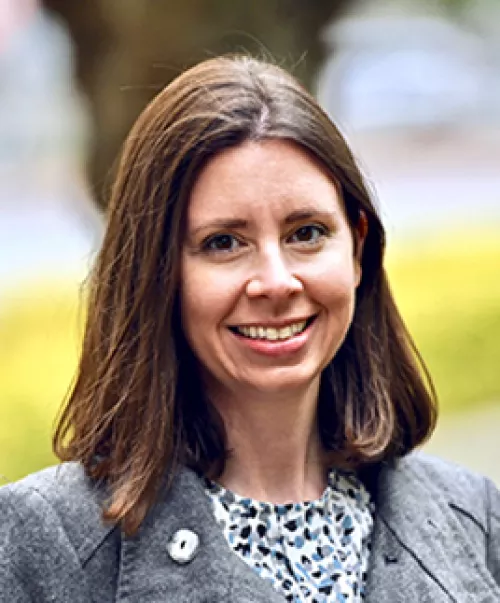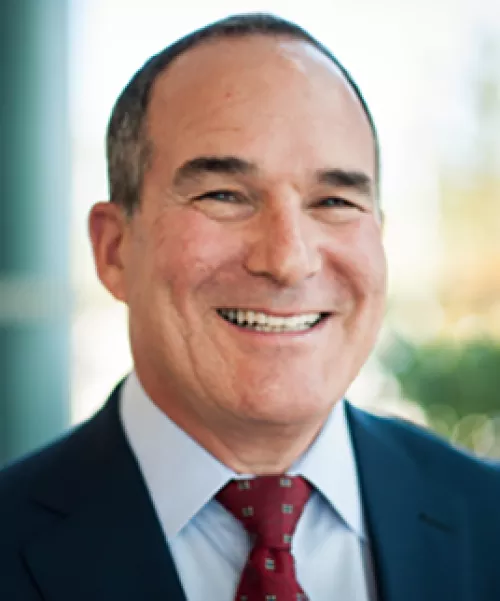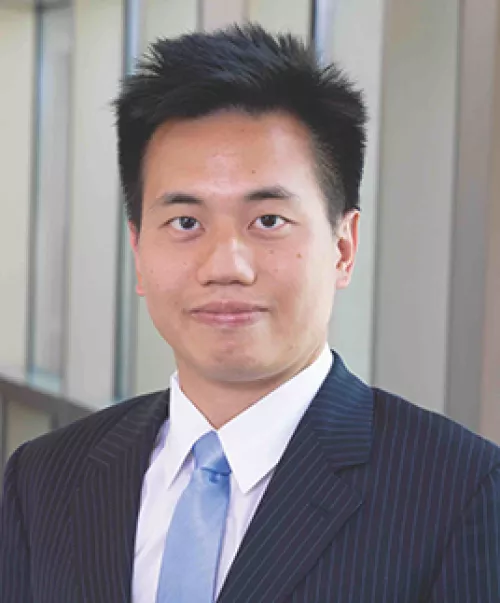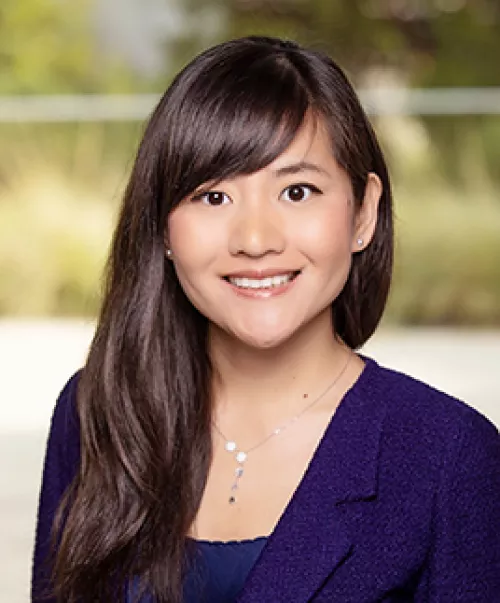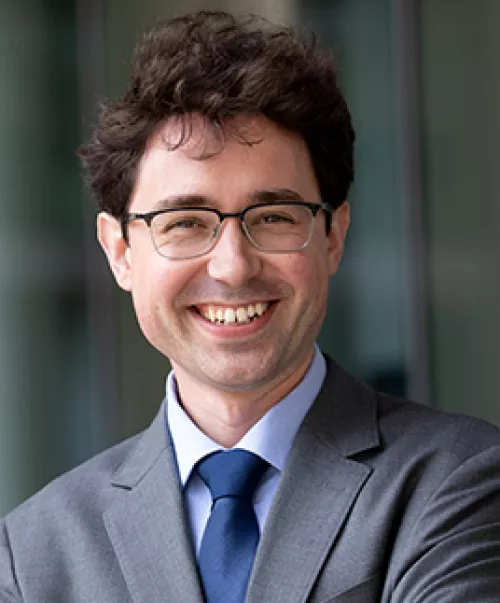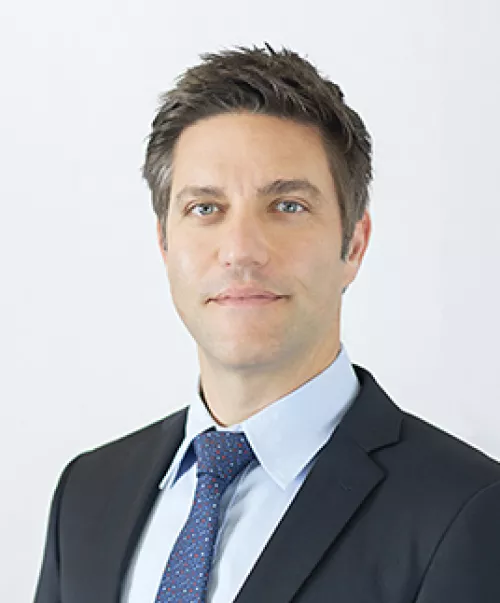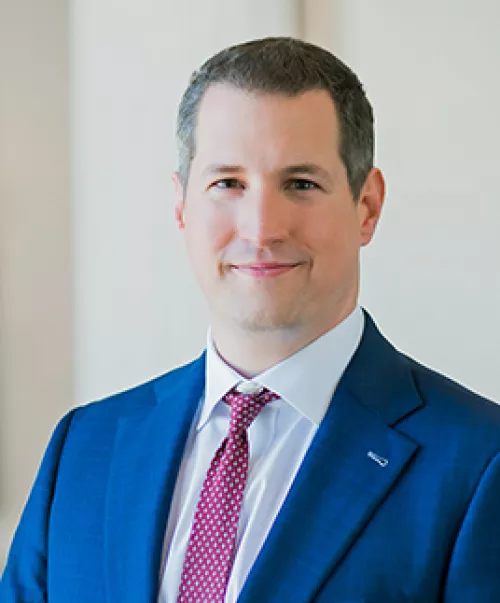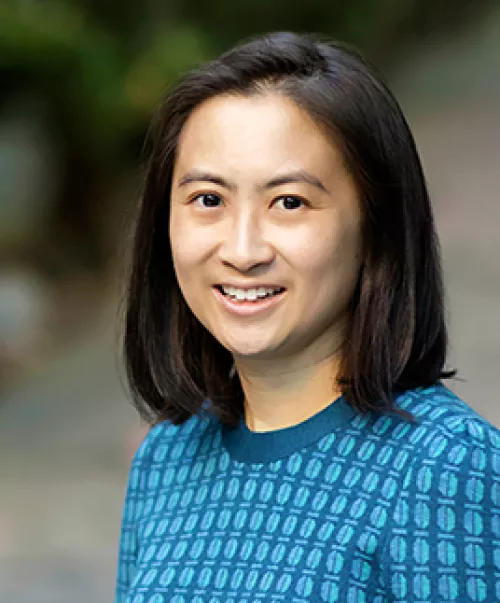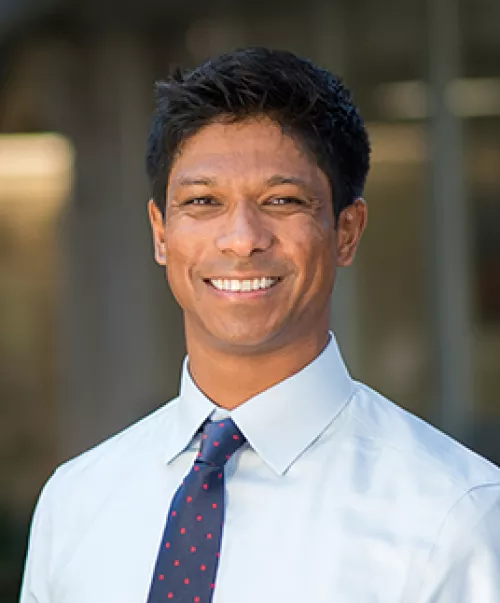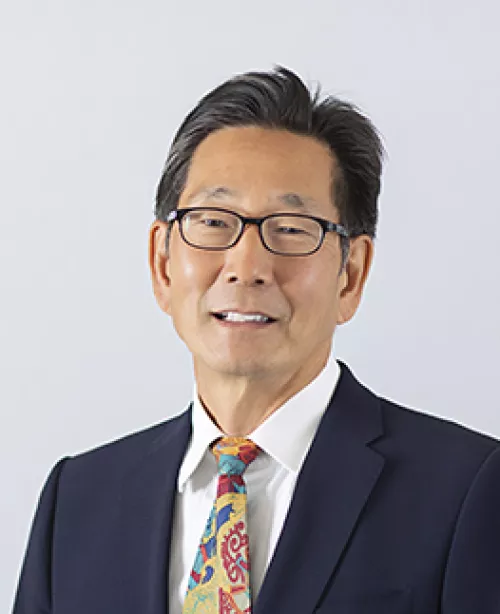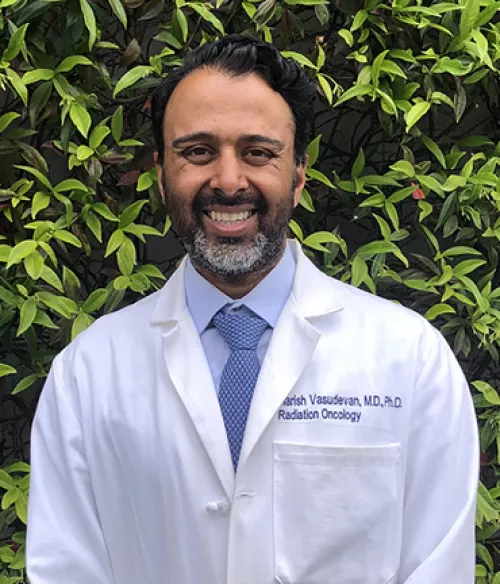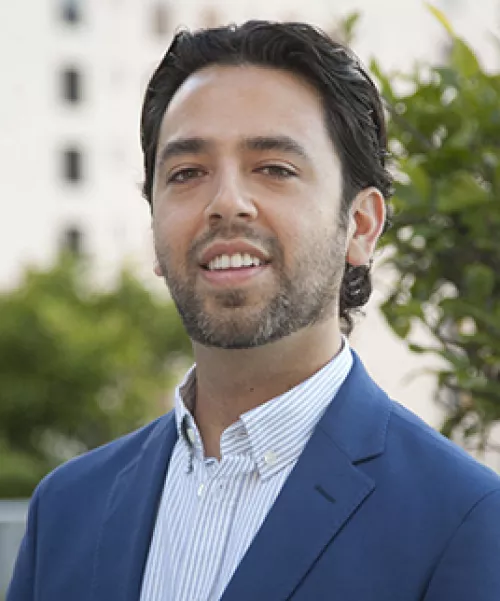Cathryn Cadwell, MD, PhD
Assistant Professor
Cathryn Cadwell completed her MD and PhD degrees at Baylor College of Medicine. As a student, she developed the Patch-seq technique for multimodal profiling of morphology, physiology and gene expression in single cells and applied Patch-seq and multipatching approaches to define the role of cell lineage in shaping cortical circuits. Cadwell completed clinical training in neuropathology here at UCSF and post-doctoral training in the lab of Tomasz Nowakowski, PhD, (previously based out of UCSF's Department of Psychiatry) studying how different cortical areas are specified during development and how early developmental events may contribute to neurological and neuropsychiatric disease. Her lab focuses on understanding how human cortical circuits form during development and how abnormal fate specification and circuit assembly contribute to neurological disorders such as focal epilepsies. The lab integrates molecular and physiological approaches to interrogate human cortical cell types and circuits, using both an induced pluripotent stem cell-derived cerebral organoid model as well as primary human tissues from patients undergoing neurosurgical resection.
Outside of work, Cadwell enjoys running, skiing and exploring San Francisco.
Robert Gamburd, MD
Associate Professor
Robert Gamburd received his medical degree from the University of Michigan. He completed his residency training in Physical Medicine and Rehabilitation at Stanford University Medical School and he then completed a Fellowship in sports medicine with Sports, Orthopedic and Rehabilitation Medicine Associates (SOAR) in Redwood City, California. Dr. Gamburd is Board Certified in Physical Medicine and Rehabilitation.
Dr. Gamburd is a former Assistant Clinical Professor with the Department of Functional Restoration at Stanford University School of Medicine. Dr. Gamburd is a consultant team physician for the San Francisco 49ers and a medical consultant for the San Francisco Ballet Company.
He is a founding Board Member of the Physiatric Association of Spine, Sports, and Occupational Rehabilitation and International Spinal Injection Society and he has done numerous national lectures and has published articles on injections.
Dr. Gamburd’s clinical and research focus is on head and neck injuries, spinal stenosis and rehabilitation, pain management, lower extremity nerve injuries, and intraspinal injections. He is seeing patients at UCSF's clinics in San Mateo and Sierra Vista Hospital in San Luis Obispo, in addition to the Parnassus Heights campus.
Winson Ho, MD
Associate Professor
Winson Ho, MD, practices at the UCSF Pediatric Brain Center in San Francisco, Oakland, and San Mateo, bringing an expertise in pediatric neurosurgery and specializing in the care of children with brain tumors, epilepsy, and trauma.
After receiving a BA from Yale University, Ho went on to earn his MD from Yale School of Medicine. He completed the joint neurological residency training at the National Institutes of Health and University of Virginia. Following his residency, Ho completed a fellowship in pediatric neurosurgery at Intermountain Primary Children’s Medical Center at the University of Utah in Salt Lake City. Prior to joining UCSF, he was a faculty at the University of Texas at Austin and practiced at Dell Children’s Medical Center.
Ho is researching novel immunotherapies for pediatric brain tumors and is focused on a particular protein called Protein Phosphatase 2A (PP2A). His lab aims to improve PP2A targeting strategies by systematically characterizing the effect of perturbing PP2A in different cellular components of the tumor microenvironment.
Ho enjoys traveling and considers himself a foodie.
Rongze "Olivia" Lu, PhD
Assistant Professor
Rongze "Olivia" Lu, PhD, investigates the molecular mechanisms of immune suppression and evasion in the brain tumor microenvironment with the goal of developing novel immunotherapeutics for brain cancer. Her previous research has identified that protein phosphatase 2A (PP2A) regulates immune suppression in T-cells in multiple tumor models including brain tumor. Based on those findings, a Phase II trial of PP2A inhibitor is ongoing at the National Cancer Institute (NCI) for recurrent glioblastoma.
Lu received her doctorate in cancer immunology from Beckman Research Institute at City of Hope, an NCI-designated Comprehensive Cancer Center. She then pursued postdoctorate studies at Genentech. After her postdoc training, she joined Medimmune/AstraZeneca and later on AbbVie to lead multiple drug discovery programs for inflammatory diseases and cancer. Before joining UCSF, she was an assistant professor at University of Texas, Austin.
Outside of of the lab, Lu enjoys skiing, photography, and exploring national parks.
Tomasz Nowakowski, PhD
Assistant Professor
Tomasz Nowakowski, PhD, aims to apply his expertise in cellular and molecular neuroscience to address long-standing challenges in human neuroscience.
Nowakowski grew up in Poland. He completed his PhD at the University of Edinburgh (UK) under the mentorship of David Price, studying the molecular mechanisms of cerebral cortex development in mice. In 2012, Tom joined the Eli and Edythe Broad Center for Regeneration Medicine and Stem Cell Research at UCSF. While completing his postdoctoral training with Arnold Kriegstein, Nowakowski pioneered the use of single cell sequencing technologies to study human brain development. He then joined the UCSF faculty as an Assistant Professor with joint appointments in the Institute for Regeneration Medicine and the Departments of Anatomy, and a co-appointment in the Department for Psychiatry and Behavioral Sciences.
Nowakowski's lab investigates how cell types of the human brain develop from radial glia. He is especially interested in understanding how cellular specializations underlie distinct functional properties of cortical areas, how unique features of the human neural stem cell are recruited in brain tumors, and how new bioengineering tools can be developed to gain molecular access to cell types in the human brain. He is actively involved in several major Neuroscience research initiatives, including BRAIN Initiative Cell Atlas Network, NIMH psychENCODE consortium, Convergence Neuroscience, Simons Foundation for Autism Research Collaboration for Sex Dimorphism, Chan Zuckerberg Initiative Pediatric Cell Atlas, and the Armamentarium consortium.
Outside of the lab, Nowakowski enjoys spending weekends with his son Zachary, daughter Zoe, and wife Ella. On rare occasions, he can be spotted catching waves at Ocean Beach.
Daniel Raper, MBBS
Assistant Professor
Daniel Raper, MBBS, will base his practice at Regional Medical Center (RMC) in San Jose, where he will serve as the director of UCSF Cerebrovascular Surgery and director of UCSF Interventional Stroke Service. He will also practice at UCSF Medical Center in San Francisco.
Raper completed a cerebrovascular and endovascular neurosurgery fellowship at UCSF in 2020. He will bring his experience as a fellow to the role of co-director of UCSF's Cerebrovascular Fellowship alongside Adib Abla, MD.
Before joining the UCSF faculty in April 2022, Raper was most recently an assistant professor of Neurological Surgery at Baylor College of Medicine in Houston, Texas. In 2021, he was named Educator of the Year by the Congress of Neurological Surgeons and given the Patient's Choice Award from the Joe Niekro Foundation. Raper completed neurosurgical residency and a neuroendovascular fellowship at University of Virginia. He'd previously earned his MBBS from University of Sydney (AUS) and his AB in Biochemistry from Harvard University.
Raper specializes in cerebrovascular surgery, endovascular neurosurgery, and neurosurgical innovation and research. He has been a strong advocate for incorporation of minimally invasive procedures and techniques for improving safety and efficacy of complex cerebrovascular procedures.
Outside of the operating room, Raper enjoys exploring the Bay Area, trying to improve his tennis and avidly following Formula 1 racing.
Luis Savastano, MD, PhD
Assistant Professor
Luis Savastano, MD, PhD, will practice at the Cerebrovascular Neurosurgery Clinic and the Neurosurgery Clinic at UCSF Parnassus. He is a cerebrovascular neurosurgeon, specializing in the microsurgical and endovascular treatment of ischemic and hemorrhagic stroke.
Savastano earned his medical degree at National University of Cuyo in Argentina, where he also earned a master’s degree in anatomy and a doctorate in medicine. He completed a residency in neurosurgery and a fellowship in neurointerventional radiology at the University of Michigan. Before joining the UCSF faculty in June 2022, he was an assistant professor of neurosurgery and radiology at the Mayo Clinic in Rochester, Minnesota.
In his research, Savastano develops minimally invasive technologies and techniques to better diagnose and treat cerebrovascular diseases. He has pioneered several endovascular devices and techniques to improve the outcome of patients suffering from various neurological conditions.
Outside of work, Savastano enjoys spending time with his wife and three children.
Irene Say, MD
Assistant Professor
Dr. Irene Say is a neurosurgeon who cares for patients with diseases of the spine, including traumatic, cancer-related and degenerative spine disorders. She specializes in minimally invasive and complex spine surgery, with a focus on techniques that preserve the ability to move, neuronavigation (computer-assisted neurosurgery) and robotic surgery (computer-assisted systems that enhance precision and control).
Say's research focuses on developing minimally invasive neurosurgery techniques as well as best practices and guidelines to improve neurosurgical care. She is a recipient of the Carl Akins Risk Management Grant, which supports her study of spinal cord emergencies.
Say earned her medical degree from the University of California, San Diego School of Medicine. She completed a residency in neurosurgery at Rutgers New Jersey Medical School. She completed a fellowship in orthopedic spine surgery at the University of California, Irvine and a fellowship in spinal neurosurgery at the University of California, Los Angeles.
Say serves as director of spine neurosurgery at Regional Medical Center of San Jose. The excellence of her patient care has been recognized by UMass Health System's Patient and Family Advisory Councils. She is a member of the American Association of Neurological Surgeons, Congress of Neurological Surgeons, North American Spine Society and Cervical Spine Research Society.
Prasad Shirvalkar, MD, PhD
Associate Professor
Prasad Shirvalkar, MD, PhD, is a neurologist and interventional pain medicine specialist who provides the full spectrum of care for chronic pain conditions. This includes conservative, nonsurgical treatments such as medications and nerve blocks. He also treats patients with advanced neuromodulation therapy by implanting peripheral and spinal cord stimulators.
In his research, Shirvalkar aims to develop new therapies for hard-to-treat pain disorders, such as post-stroke pain and phantom limb pain, by harnessing technologies such as brain and spinal cord stimulation. He is currently studying brain circuit mechanisms of chronic pain signals with the goal of personalizing adaptive brain stimulation therapies. He is spearheading clinical trials to develop closed loop brain stimulation for pain in collaboration with Edward Chang, MD, and Philip Starr, MD, PhD. His research is supported by over $10 million in NIH grants from the BRAIN and HEAL initiatives.
Shirvalkar earned his doctoral and medical degrees at Icahn School of Medicine at Mount Sinai. He then completed a residency in neurology at Weill Cornell Medicine and Memorial Sloan Kettering Cancer Center, where he served as chief resident. He first came to UCSF to pursue a fellowship in pain management, and went on to join the faculty as an associate professor of anesthesia.
Shirvalkar serves on the scientific program committee of the North American Neuromodulation Society and has received numerous awards for his work, including the 2016 Weill Cornell Medicine Outstanding Neurology Teaching Award and multiple UCSF Catalyst Innovation Awards over the last three years.
In addition to medicine and science, Shirvalkar has a passion for percussion. He plays jazz drums in his free time and used to play with the Oakland Raiders' band.
Brian Toyota, MD
Professor
Brian Toyota, MD, brings his extensive leadership expertise to his new role as director of Neurosurgery for UCSF's Neurosurgery clinic at Regional Medical Center (RMC) in San Jose.
Prior to joining the UCSF faculty, Toyota served as head of the Division of Neurosurgery and program director of Neurosurgery at the University of British Columbia. He has held several leadership roles in neurosurgery with both local and national scope, including provincial chair of Neuro-oncology and co-chair of Stereotactic Radiosurgery at the British Columbia Cancer Agency, co-chair of Neurosurgery at the Royal College Committee, president of Neurosurgery at the British Columbia Medical Association and president of the Canadian Neurosurgical Society. He currently serves on the editorial board of the Canadian Journal of Neurosciences and as Associate Editor for the online journal, Frontiers in Neurology/oncology. He completed his neurosurgical training at the University of Western Ontario in London, Ontario under the tutelage of Charles Drake, MD, Skip Peerless, MD, John Girvin, MD, PhD, FRSC(C), and Rolando DelMaeastro, MD, PhD among others and received his MD from McGill University School of Medicine in Montreal, Quebec. He has also completed the Surgical Leadership Program at Harvard Medical School.
Toyota specializes in neuro-oncology, radiosurgery, laser ablation therapies, surgical leadership, and neurosurgical innovation & technology research. He has been a strong advocate for the brain tumor population and their fight to find a cure.
Outside of work, Toyota spends time with his wife and six children. He is involved in sports and music, including hockey, golf, tennis, skiing and 'playing the drums poorly.'
Harish Vasudevan, MD, PhD
Assistant Professor
Harish N. Vasudevan, MD, PhD, is a radiation oncologist who cares for children and adults with nervous system tumors.
With the goal of improving diagnosis and treatment, Vasudevan's research focuses on how certain signals within cells – in particular, those involving a family of proteins called receptor tyrosine kinases and the Ras signaling pathway – lead to cancer. He has a special interest in neurofibromatosis, a genetic disorder with numerous effects, including an increased risk of brain and nerve tumors.
Vasudevan completed his undergraduate studies at the California Institute of Technology. He earned his medical degree from the Icahn School of Medicine at Mount Sinai, where he also earned a doctorate in neuroscience. He completed a residency in radiation oncology at UCSF and served as chief resident.
Javier Villanueva, MD
Assistant Professor
Dr. Villanueva-Meyer has served as Medical Director of MRI at UCSF since 2021 and has distinguished himself as a leader across our mission areas as a talented clinician, patient advocate, transdisciplinary partner, and top-notch educator and mentor. In September, he transitioned to his new role as Vice Chair of Quality and Technology for UCSF's Department of Radiology and Biomedical Imaging.
Dr. Villanueva-Meyer received his MD from Baylor College of Medicine. At UCSF, he completed a residency in diagnostic radiology and a fellowship in neuroradiology, followed by a NIH T32 post-doctoral fellowship.
Dr. Villanueva-Meyer’s interests focus on advanced MR imaging and imaging-based tools to better delineate and characterize brain tumors. His research also involves molecular imaging, where he works to develop and implement the use of PET radiotracers in both brain tumors and spinal infection. He has clinical expertise in CT, MRI and plain film radiography of the brain, head and neck, spine, and peripheral nervous system, as well as diagnostic and therapeutic neuroradiology procedures such as percutaneous biopsy, lumbar puncture, myelography, cisternography, epidural and selective nerve root injection.


